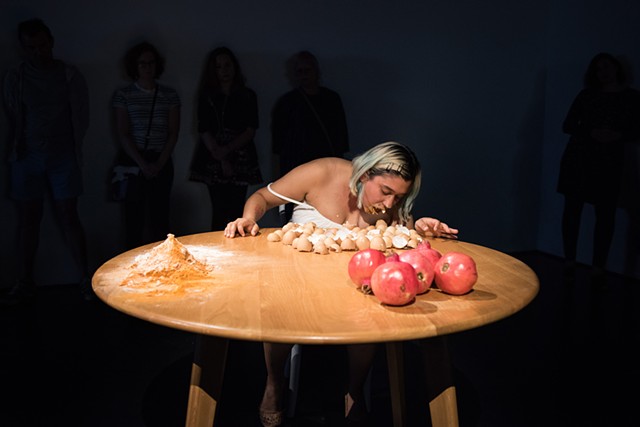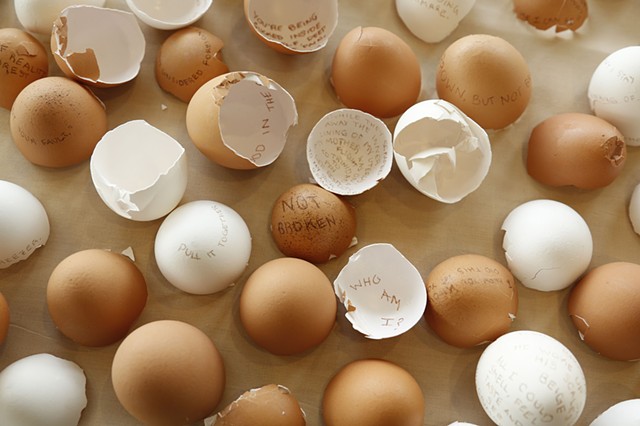Bite Your Tongue
My mouth takes on the qualities of a food processor in my 35 minute live performance 'Bite Your Tongue' to reconstitute curry and flour, eggshells, and pomegranates into an altered version of their original state, solely using my mouth.
In the endurance piece, 'Bite Your Tongue', I worked my way around a table in three stations. The first station contained a mound of curry powder and a mound of flour, the second, a pile of eggshells with personal journal entries scrawled in brown ink across and inside the shells, and at the third station five pomegranates. The performance began with me bringing a chair to the table and sitting in front of the mound of curry and flour. I then proceeded to mix the curry and powder into a newly formed middle pile solely using my mouth. Following the mixture of the food powders, I stood and carried my chair to the station containing the pile of eggshells. From there, I masticated the eggshells and spit them out into sandy granules and pulpy shards. I then moved to the area of the table containing the five pomegranates and pulverised them using my mouth, spitting out the sloshy remains of chewed pomegranate rinds and juice. The performance concluded with me picking up the chair and leaving the gallery.
The difficulty that I endure in 'Bite Your Tongue' seems to be driven by some outside force. Like a child told by their parents that they cannot leave the kitchen table until she’s finished all of her homework or eaten all their vegetables, I meticulously proceed with my task. However, the way by which I proceed is without sadness, anger, or disappointment. It is done through a methodical commitment, as though these actions are doing something more than just causing pain and discomfort. I carried out these arduous tasks to depict one of the ways I have learned to manage my trauma, by enduring difficulty in isolation. The way by which I endure difficulty, however, is one where I work my way through difficult tasks in order to thoroughly process material. This method of processing of material evokes the way trauma is processed, enacting the idiom ‘to chew on something.’ Drawing from this idiom, I consider the complex ways processing one’s own trauma is isolating; it is a task of looking inward whilst external stigma is imposed on persons living with trauma.

